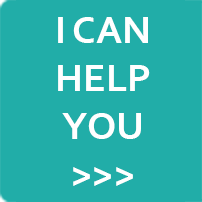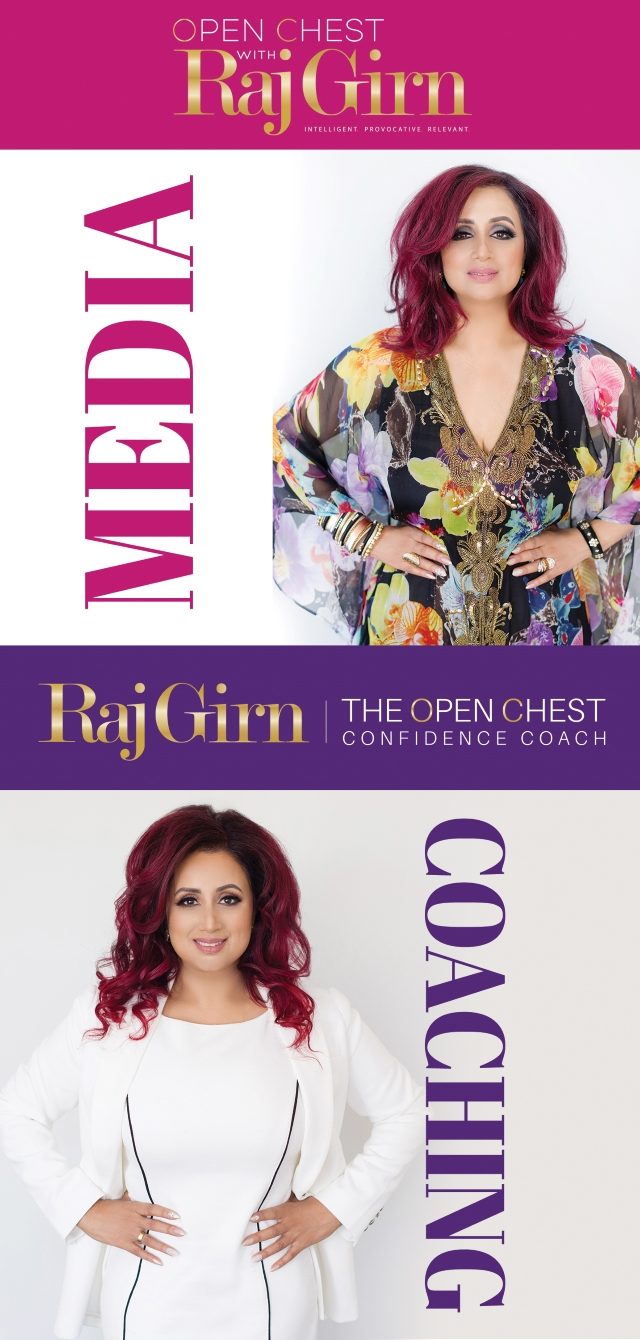Trigger Warning: Very Sensitive Topic
Today’s show is aptly entitled Decoding Human Trafficking on the very day that the United Nations has declared to be World Day Against Trafficking in Persons. My guest for this very first important conversation is a very prominent and vocal advocate against human trafficking here in Toronto, Shae Invidiata. I’m so pleased that with her packed schedule, today of all days, she has been able to carve out an hour to spend with us to educate, inform and bring awareness to this multibillion dollar a year flourishing organized crime industry that spreads from the streets of the world to the homes of some of the most richest and powerful people in the world today. Before I welcome her formally, I’d like to tell you a little bit about her. Shae is an award-winning human rights activist, philanthropist, entrepreneur, speaker and wellness advocate. She is the founder of the not for profit organization Free Them, which is one of Canada’s leading voices in the anti-human trafficking movement. Shae is known for her unwavering determination, leadership and courageous spirit. She never hesitates to hold powerful people’s feet to the regulatory fire, especially if it means protecting and improving the life of others. Shae is also a member of the Invidiata Team, a leader in some of the most elite luxury real estate markets here in Canada, across the United States and in parts of the world. At a very young age, Shae learned about the importance of giving back. Shae believes that change and justice can be found in all places, no matter how desperate the odds.
WATCH THE FULL LIVE INTERVIEW BELOW
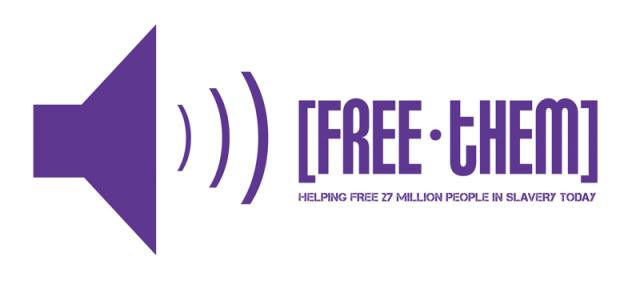
Please welcome officially and formally my dear friend and superhuman Shae Invidiata. Thank you so, so much for being on today, sweetheart. I know that your schedule, especially today of all days, is really insane. And the fact that I get you for the next 50 minutes is just such an honor and a blessing. Thank you so much for joining us for everyone from around the world to join us and to hear this conversation that needs to be heard and to create the awareness that needs to be created in homes, in families, in churches, in schools, in communities, and in organizations. Thank you. Thank you. Thank you.
It’s my pleasure to be here with you guys. If you’ve tuned in before, you’ll know that this isn’t the first time that Raj and I have sat down not only to talk about the issue of human trafficking, but powerful, important conversations in general. And so, it’s always my pleasure and it’s my absolute honor to be able to sit with you, whether it’s in person or through technology, to bring important conversations to the surface to help start the dialogue and the ripple effect. So, let’s do it. I’m excited. I’m looking forward to today.
HOW HER JOURNEY STARTED. . .
First of all, I want to begin by saying that I am wearing a Free Them t-shirt here as is Shae. You can see that mine says inspire and Shae’s says love. These are t-shirts that we promoted last year’s annual walk with. And you know, this year is a very different year. It’s kind of been coined the year of change. The advent of the pandemics and the realization of many uncovering’s in various capacities have really come to light on many levels. The conversation this year is going to be a lot different than the conversation you and I have had in the past, each time we’ve come to this really important day in the year, and that has a lot to do with the fact that there is a lot that is being uncovered, a lot of thoughts around the concept of human trafficking is changing. The masses are starting to understand the deeper meaning of what this industry is all about. So, without kind of prefacing anything further than that, I want to kind of bring people up to speed on your journey with human trafficking. Why did you decide that this was your calling in terms of a cause that you needed to dedicate your life to?
Human trafficking in itself is not one of these fuzzy topics. It’s very dark. And to wake up one day and just go, yeah, this is what I want to take on, this is what I want to fight, is not usually that common. So, it’s a question that I get often. Some of your audience today might know. My story started back when I was 18 in 2003, I had moved to the island of Oahu in Hawaii to start my university education. Before leaving Hawaii, I would tell my family and friends that I really felt that there was something bigger, something greater that was calling me to Hawaii. At the time, people would laugh at me being like ‘oh yeah, surfing right? Like the mountains, the ocean, like, so difficult to choose to go to a place like that.’ And I just really felt that I was really being called there.
Any of you who have been to Waikiki, you’ll know that there’s three main roads that parallel the ocean and the middle road is called Kuhio Avenue and that’s where our dorm was. So, we had a downtown campus and we had a Windward campus in the mountains. I was in the downtown one and it was a hotel. It operated half as a hotel; the other half operated as our dorm. If you stay in Waikiki long enough, Kuhio Avenue is known as Candy Lane. This is where you would go from seeing board shorts and surfboards during the day with families to dusk happening and then all of a sudden you would see more than half naked girls that would be walking along Kuhio Avenue and walking along the strip. I would see this day in and day out. I’d wake up first thing in the morning to go for a surf or go for a run and I would see the girls. I would go to my night classes, I go out for dinner, I’d come home, I go out even to the clubs and come back at two, three o’clock in the morning and see these girls. Like I mentioned, I was 18 at the time, and these girls were easily 12, 13, 14, 15 years old. We all know that if we put on some red lipstick, we put on some makeup and put on mom’s high heels that a 12-year-old easily can look like an 18-year-old very quickly.
So, this is where my journey began is, I wanted to understand why would a girl ‘choose’ to be in this? Whether you believe prostitution to be right or wrong for me was irrelevant. I just wanted to understand why somebody would wake up wanting to do this. I was eighteen so I also didn’t know as much as I do now. It started me on this journey of asking questions. I believe that if you’re wanting to ask questions, you need to be willing to listen to the answers and not be argumentative, but truthfully be in a space of listening, of learning, of absorbing. It’s a much longer story, but what I started to learn is the word prostitute that we equate so much with choice is widely misrepresented and the more accurate word to be using is prostituted. I learned their stories through this. I learned about the forced abortions that they had. I learned about the fake modelling agencies that didn’t exist when they showed up on the island of Oahu. The boyfriends that promised them a dream vacation of a lifetime, that when they showed up on the island it turned into their worst living nightmare.
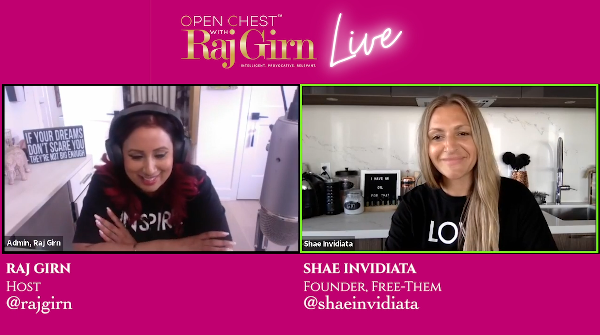
When you think of the word prostituted, it’s amazing how two letters on the end of a word can dramatically change the meaning of it. I realized that these women were being forced to do things that they didn’t want to do, that they were being exploited and that there were people, men who were profiting off of their bodies. That is what it means to be prostituted. A more simple word that encapsulates all of that is the word human trafficking. I actually didn’t learn the word human trafficking until I moved to Vancouver. And that’s a much longer story. But I was about three and a half years in Hawaii, about three years in journeying with these girls and learning the stories and seeing the pimps. Even myself I’ve been recruited a couple of times as well. They still have pimps and business cards to this day. It’s crazy.
Can I ask you something there, Shae? So, how does a pimp solicit a person, considering you’ve been on the receiving end of that?
Yeah, So, usually there’s like one of two things, if not both things that a trafficker, a pimp is going to look for. I always say whenever you have poverty and vulnerability in a situation, you’re susceptible to human trafficking. A pimp is going to look, especially, for the most vulnerable point. I didn’t understand then why I was getting approached by these certain guys. I had a roommate back in college that was completely naive. I could see them approaching her. She wasn’t the prettiest girl, she had body image self-consciousness and so it would be very easy for a pimp, for the trafficker to prey in on that vulnerability, right? Whereas myself, I used to wear board shorts and a hoodie, and I wouldn’t really say that I was the type that a guy is going to try to approach to necessarily lure. Fast forwarding and I’ll come back.
I realized later that I was getting insight and foresight to who all of the pimps were on the streets that maybe I wouldn’t have identified before. And my journey started after that. But going back to your question, it was selling me on the dreams. I got offered to go to the island of Maui for a weekend, which again if anybody who has not been to Hawaii, Maui’s really known as the most romantic, the most exotic and expensive. I was offered a couple of times to go there for a weekend. Everything paid for. All my food, my flights, take me shopping and I got a business card. On the business card, it says property management with two red money bags.
I remember back then one, I had a potty mouth which catered to my backbone of, like, being bold and all of that. I just always knew that if something sounds too good to be true, it is. The other golden rule is that nothing in life is free. And I didn’t know then what I would even learn even in a year’s time later, slowly starting to learn but back then I was like, this sounds too good to be true and nothing in life is free. I also didn’t need you to pay for me to go away anywhere. If I wanted to go to Maui, I was thankfully in a position that I could have done that. So those three things, two of them being knowledge and mindset, didn’t allow for me to be as vulnerable as they were hoping for. I brushed it off. I said a few cuss words, kind of like putting your money where your mouth is, type of the thing, I don’t need you, etc. And that was it for me.
Looking back, I could have ended up in an alleyway for just giving the type of disrespect and mouthing off, really. But it gave me insight being approached and it didn’t happen to me a bunch of times, two or three times max. It still gave me insight into a lot of the process like this is what these pimps and the traffickers are looking for and how they can tap into vulnerabilities. The more you are impoverished, the more vulnerable you are, because somebody who comes in selling you on a dream that ‘I can take care of you, I can feed you, I can provide for you, you don’t need anybody else except for me. You’re the most beautiful girl that I’ve seen in my life.’ For me, I’ve got brown eyes. So, it’s like, you know, ‘you’ve got the darkest brown eyes.’ And if it’s blue, ‘you’ve got the most crystal blue eyes like the ocean.’ It’s that wooing process that happens.
When you’re in a situation where you’re either desperate or your physical needs are not being met like a basic shelter and food, this becomes something that you might take a risk on. If you’re already being abused at home as well. If you’re not coming from a good home and you already don’t have shelter over your head or you’re a runaway youth, and you’re on the streets or you’ve already been sexually abused by the time you’re being approached, all of these vulnerabilities get exposed and the trafficker can see that and plays in on that. Some of these girls were that way. I learnt about the pimps that would pick up their kids from school and drive and take them back from school. Being on an island, it made it that much more challenging to escape. If you’re in L.A., you might be able to sneak away, try to escape, get on a bus and book it but you’ve got thousands of kilometres of water in between land and Oahu, which makes it that much more challenging.
After learning their stories, I vowed to myself saying if this was me, I’d be praying that somebody would be coming for my rescue. I’d be praying that somebody would be telling my story. That somebody would be my voice. I don’t believe in saying a voice for the voiceless. I believe that each girl, each child, each young boy has a voice that’s being silenced and that’s what I wanted to amplify. As long as I had a voice, I was going to do just that. I wanted to tell the world that they’re victims. They’re not sluts, they’re not whores, they’re not survival of the fittest. They’re not doing what they need to do to provide to get by, which is a really lame, weak excuse that we’ve done as a part of society. I wanted to do something. I didn’t know that it was going to amount to founding an organization called Free Them seven years later, which was in 2010, that would go on to being one of the most authoritative voices on the issue of human trafficking here in Canada, changing legislation, helping to fund the rescue of victims of human trafficking here in Canada and also abroad. That’s the short version of sharing with everyone my journey in this and how I got started.
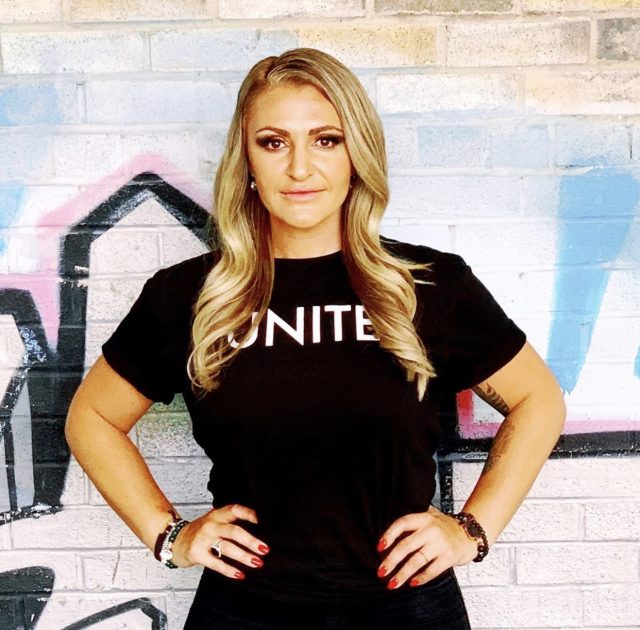
Absolutely. It kind of prompts an obvious question, Shae. There’s a lot of very powerful people and organizations and infrastructure in place as there is with any form of organized crime. Are you not afraid that your voice and the amplification of your organization, which goes from strength to strength each and every year, could potentially cause you harm?
You know, once upon a time, there was that reality of actual fear. Back in 2011, some of you might remember, it’s called the Opapa case that happened. Still to this day, in Canada, it’s the largest human trafficking case that ever went before Canadian courts, and that was dealing primarily with forced labor, although there was sexual exploitation as well, but it was predominantly men in this case. There was a hit coming in from outside of Canada for the RCMP officers that we were working with and a survivor of human trafficking that had a frontline agency, at the time it was called Walk with Me to basically, you know, take them out for what they were doing and that was really nerve racking knowing, you know? How many degrees of separation are you? Who’s seeing your Facebook, but even being on national television back then and of course, even now.
I think when you know that you are truly living in your purpose and in your calling, not only does it bring you great joy and satisfaction, but you become unstoppable and you know, outside of philanthropy or outside of non-profit work that makes you succeed in life, right? Like that’s where you rise to the top and however you define what success is. When you look at what we’re doing within Free Them and fighting human trafficking, I know that it’s what I’m called to do. I know that I am meant to speak up in the capacity that I am not everybody is going to be called to doing exactly what I’m doing. Not everyone is going to be called to start an organization. Not everyone is going to be called to use their Instagram on their platforms the way that I do. Maybe it’s a post here and there. Maybe it’s telling five or six people about what they’re learning here today. We all have different roles and responsibilities. I actually said to somebody the other day that I would rather literally die knowing that I am standing up, speaking truth and defending for justice and fighting for Free Them and for freedom, play on words, but fighting for freedom than to go about my life, not saying anything at all or even dying anyways and not saying anything at all. I’m just not afraid of death. I feel that everything that I’ve done in my life that if, God forbid, something were to happen to me tomorrow, I’ve done my part. Hopefully, it would encourage and inspire enough people to keep the torch going and to keep speaking up, because we do need that.
THE DIFFERENCE BETWEEN HUMAN TRAFFICKING AND PROSTITUTION. . .
Absolutely. It’s easier said than done and you are a testament to your true north, your purpose and your conviction around the fact that the more awareness that we create around this, the more chances we have of collaborative help. So, let’s talk a little bit about some information around human trafficking that a lot of people really don’t know. Let’s start with the fact that you have human trafficking and then you have the word prostitution. These are often times confused. Let’s start there. Can you define the difference between the two, if there is one, just so we can be very clear on the definition before we move forward?
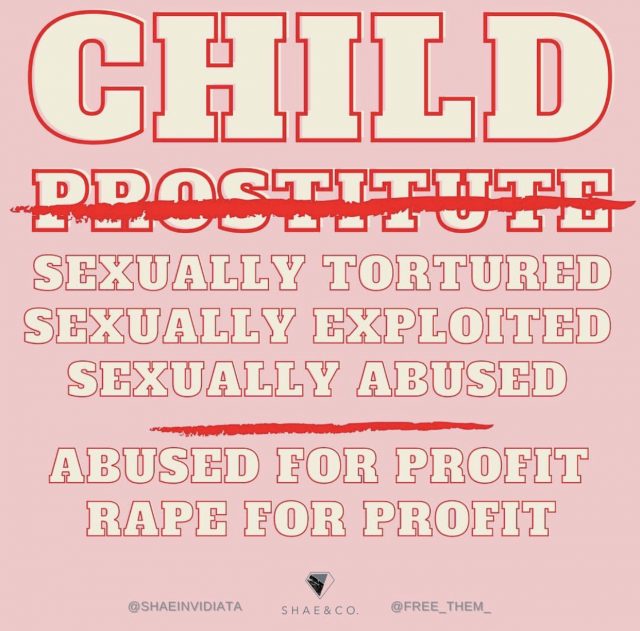
That’s a good question. Some of you out there might disagree with me on that, on this, and that’s okay. So, prostitution can be labeled as the oldest profession in the world. I say it’s the oldest oppression in the world. You can come argue with me about that. I think that there is, again, how do you define a situation? How do you truthfully define what choices when somebody knows their value and worth? Someone who has not been sexually abused at younger ages. When they have food and they have basic needs met? The probability is not as high. When you look at just the word prostitution it’s somebody selling their body for sex. That’s the short term.
I’ll also explain human smuggling, might as well, because there is a difference. People get that very confused. Human trafficking is the illegal, non-consensual act and movement of a person. Whether you’re being moved from the U.K. to Canada, from Toronto to Mississauga, Toronto to Vancouver. It’s the illegal, non-consensual movement of a human being who’s being exploited for profit. Whether that is sexual exploitation, whether that’s forced labor, whether that’s debt bondage. You know, when you start talking about debt bondage and child labor, that takes place a lot more in Southeast Asia and places like India, but it’s the illegal, non-consensual relationship, simply put.
Whereas, human smuggling is the illegal, consensual relationship that takes place. What do I mean by that? Let’s pretend I’m a human smuggler and I’m in India and Raj, you say to me, ‘I really want to come to Canada. I have no papers. I have no reason and no way to get into the country. Can you get me in there?’ It is an illegal, consensual agreement that I am going to bring you somewhere. So, that’s the main difference. Often times that arrangement of human smuggling, illegal, consensual upon arrival to your destination, be it Canada, be it Eastern Europe, wherever it is, that switch will flip, and that human smuggler becomes your trafficker very quickly. They already have your passport and your documentations. Now, there’s a debt on your head for the transportation, all kinds of things that you thought you’d already paid for up front, it now has interest on it that you need to pay more. You are not able to leave that relationship with your smuggler, that’s now your trafficker. Until that debt is paid off through forced labor, sexual exploitation, the two most common forms of human trafficking that we have.
So, the confusion is that because prostitution the word has so much choice around it, it misconstrues consent. When you hear the word prostitute, you think of somebody who is consenting to the sexual acts and getting paid and that the money exchange makes it ‘consensual’. The average age of entry into forced prostitution in Canada and in the United States is 13 years old. To have the average being as low as it is, you need to have so many kids who are around that age, to keep that number an average. So just because a 13-year-old or a 14-year-old is receiving money in exchange for a sexual act at 10 to 14 years old, that’s not consensual. That is complete exploitation. That’s rape. Somebody is paying to rape that individual. That is not a choice. Rather, the circumstance chose them, chose that child, chose that young female.
Just because you see somebody who’s 18, 19, 20 years old that might be of age to consent, the most important question is, when did you first enter into the sex industry? When was the first time you were sold? When is the first time you received money for being raped? That’s a question that needs to be asked. Just because you’re 18 or 19 now does not mean that you weren’t coerced, lured, trafficked and exploited at the ages of 13, 14, 15 and 16. It’s just been happening to you now for four years, five years, six years, etc. That’s the most important thing that needs to be remembered is that we are talking about an industry that the average age of entry is 13 years old. That’s just Canada and the United States. If you go to Southeast Asia that number drops down tremendously, almost in half, where your average age that children start to get trafficked, sexually exploited, raped, tortured and abused is 6, 7, 8 years old.
So that’s not a choice. We put out on our Free Them account this week calling it what it really is. The word child and prostitute should never go together. There is no such thing as child and prostitute. When you hear the word child prostitute, you think the child is doing what it needs to do in order to what, provide food for its family? At 6? Are you kidding me? There’s so much choice and consensual language tied up in the word prostitute that it’s paramount that we start using proper language when we’re talking about human trafficking and even prostitution, because you cannot look at human trafficking without acknowledging prostitution and what is going on.
Absolutely. And it’s interesting something that you kind of picked up on there Shae that I want to kind of explore. That is the difference between someone that is trafficked in countries like North America, where you often times wouldn’t think that human trafficking is as prevalent. Then you look at countries like Asia, Africa, places like that, where you kind of think, pop culturally, that’s where it’s going to be. The difference between the trafficked persons also is something that we should talk about, you know, how do people, why do people get trafficked in one part of the world versus the other? Now, money being scarce in certain parts of the world, even you hear of family members, parents using their children as a commodity to bring in money through trafficking them themselves.
And then on the flip side, you hear of people being trafficked in the most suburban, the most affluent parts of the world, North America of course, where you never, ever think that a person would ever have a scarcity ideology when it comes to money. So clearly, there’s two very different reasons why people get trafficked. Can we talk a little bit about that? Because geography, classism, economy, religion, all of these things do factor into the type of trafficking and why people are either forced or coerced into trafficking. Forced is a very different ideology of trafficking than being coerced. Can we talk a little bit about that through your experience? Because I know that you have experience extensively, not just in North America, but also India and other parts of the world.
Yeah. For those of you guys who don’t know, I’ll just take a little sidebar to say that at Free Them we support and work with an organization called International Justice Mission. They have projects all over the world. Specifically, Free Them supports different forced labor and sexual exploitation, rescue projects in India and then also in the Philippines, both of which that I have been there on the ground, on site. I’ve been through sting operations with them, rescue missions with them in both countries.
To your point, Raj. Yes, it is very different, yet there’s a lot of commonalities. Again, the main driver is going to be poverty and vulnerability. It comes back to that. If you could eliminate the impoverish situation in places like Kenya and in Romania and through Eastern Europe, you go to Southeast Asia and go into Thailand, Vietnam and Cambodia. If you were to eliminate the poverty, you eliminate the vulnerability. You’re not susceptible anymore to human traffickers. The biggest thing outside of poverty and vulnerability, the reality is, is that when there’s a demand for something, there will always be a supply. If there was no demand in Cambodia, Thailand, Vietnam, in the Philippines, in India to literally buy children who are 3, 4 or 5 years old. In the United states too, I know we’re talking a little bit overseas, but 80% of all ‘sex tourism’ in the world comes from the United States. It’s in our backyard. I hate using the term sex tourism.
Again, that’s another thing we put on our Free Them account. Call it what it really is pay to rape, pay to molest, pay to torture, pay to abuse, that’s what it is and 80% comes from the US. So as much as it’s more prevalent having these younger ages outside of Canada and the United States. The demand, 80 % of it is right here in our backyards. So, if the demand was curbed and stopped, you wouldn’t have parents that could even sell their children. Who’s buying them? If people aren’t going to purchase them, then they would figure out something else. The selling of human beings is the second largest illegal enterprise next to drugs and arms. It’s because it’s very lucrative. You can reuse the body over and over again 15 to 20 times a day to be raped and rented out over and over again.
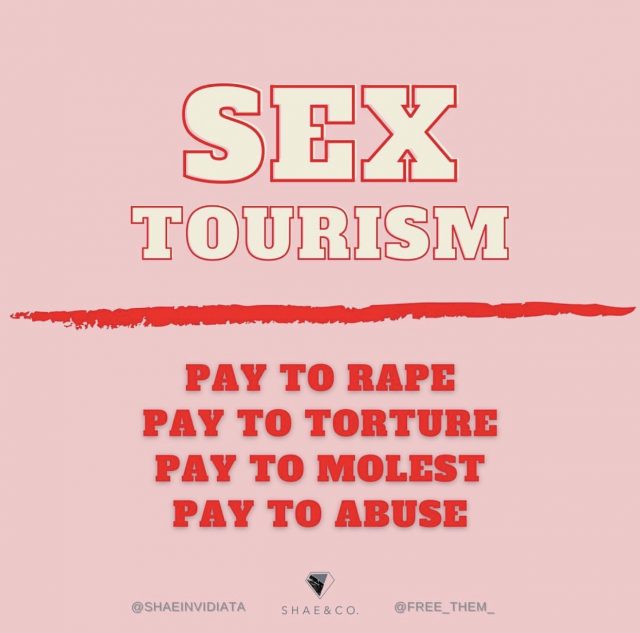
There are many different situations that are super complex when you start asking about a parent who sells their child to provide for the rest and it’s heart wrenching. It shouldn’t even be something that you and I have to talk about. There’s also a lot of traffickers that come into these communities, into these villages and offer the daughter a job in the big city, thinking that they’re either going into the hospitality industry, maybe they’re going into the food industry, and the parents genuinely do not know what’s going to happen to their kid. But they know that whatever the risk is, is probably better than the life circumstance that they’re living in right now.
So, you’ve got a lot of girls and you see this a lot even in Asia, where once the girls and the females are being trafficked, they never tell their family what’s going on at home because there’s so much shame that then can be brought culturally on that family. So, it’s hidden. Meanwhile, this torture is happening, and this exploitation is taking place. It can become very, very complex when you start looking at necessarily why. If we were to, like I said, eliminate poverty, poverty and vulnerability in those situations and then more importantly, cracking down on the demand, telling purchasers that it is not okay to buy children and to rape them and molest them and do whatever you want with them. You would see it slowly decreasing worldwide. The demand would not be there for that.
As you mentioned about forced and being coerced and there is a difference. Although terminology wise, yes, there is a difference where you have somebody who’s just being forced, whether they’re 6 years old or they’re 13 years old, and that they’re in a position that they are being forced. To be coerced has an ill intention already associated with it, that what you are offering to the person, you’re luring them in, and that what you’re stating is not actually what’s going to end up being. A girl that might agree to what’s initially being said or the reasons that’s being said. As it changes, it does not mean that she’s actually consenting. It does not mean that she’s now actually agreeing. So, to be lured in order to be coerced into something and then it ends up being something else is almost the same as being forced. It’s a very grey area. The biggest difference is just the point of introduction, right? Where one is very blunt at the beginning and another one is a progression into something that you didn’t sign up for.
WHAT TYPE OF PROFILES DO HUMAN TRAFFICKERS LOOK FOR?. . .
Let’s hone in on North America. This is where we’re at. This is where we live. I know that through our conversations about human trafficking, you’ve told me time and time again that people are always shocked and dismayed at the fact that human trafficking is so prevalent in our “backyards.” So, let’s talk a little bit about how is that? How is it that somebody that lives in a very affluent family can get coerced and/or forced into human trafficking situations? Those people don’t need money. What is the other reason? What are some of those causal effects that warrant the pull of these types of profiles into human trafficking by traffickers?
Right. There’s kind of three different tiers, if you will, to answer this question properly. Again, when we’re talking about the average age of entry and looking at children, often times if the child has not actually been kidnapped or gone missing, which in Canada annually, we have fifty thousand children that go missing in our country. In the United States, it’s about eight hundred thousand a year.
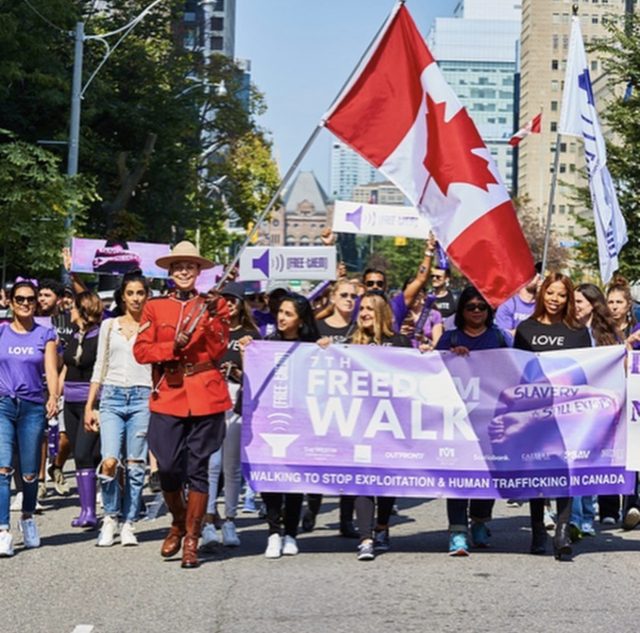
Wow. Sit with those numbers for a minute, it’s insane. If you actually look at the population of Canada versus the States, it’s literally the same ratio number if you really look at it from that perspective. I was just shocked to hear what you said for a moment. Carry on.
I always like to break it down. I should have done this before, but when you think of taking like, let’s say half of all of Toronto. That’s practically all of the children who go missing every single year in the United States. You have over three hundred thousand victims that are domestically trafficked in the United States every single year, which I believe actually is around the population of Oakville, if I’m not mistaken.
I always say, like, imagine all those people, because that’s much easier to conceptualize, right? Like what that number means, and they’re just vanished. They’re missing. They’re gone. And I’m convinced that knowing what I know now around the issue of human trafficking, if they’ve not found the bodies that these kids are in the trade and they’re being exploited.
So, when you look at the kids who are still at home under, I wouldn’t even want to call it parental or guardian care, because that’s not the right word at all in this situation. But when you look at the children, 7, 8, 9, 10, 11 who are still at the place that puts the roof over their head. These are individuals that the victim knows and is associated with. Sometimes it’s from a family member or, like I said, somebody that victim knows. You sometimes have the actual parental care that is exploiting their child, whether it’s online for the purpose of child rape videos, which again, most people say child pornography. I say that those are two words that don’t ever go together. Let’s call it what it is. Child rape videos, that’s 100% what it is. That can take place right underneath our noses without anybody knowing.
Shae, why would a girl that goes to school locally and does not have to worry about money, why would she fall for something like this?
So, again, a trafficker is going to tap into the vulnerabilities of that girl.
Talk about some of those because there is a profile. There’s a profile that traffickers are very familiar with. Talk to us about those profiles. Like what are some of the characteristics of these profiles that are more susceptible to be trafficked?
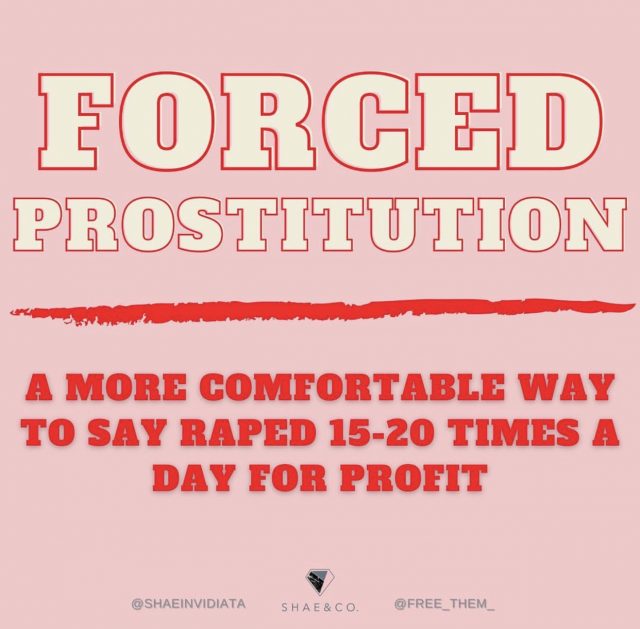
Yeah, like if you’re coming from a well-to-do family, the guy is going to come on as a boyfriend figure, he’s going to be trying to pick you up playing you up with compliments. I know we’re still in Covid right now, but typically when the malls are open, movie theaters are open and coffee shops are open, these are areas where girls can be lured by traffickers. Whether you’re with one girl or you’re with a group of girls, that guy is going to come on and single you out and give you all of the attention in front of your girlfriends.
Whether you guys think he’s good looking or not as a girl, it doesn’t really matter. What matters is that he chose you. He chose you over everybody else. He chose you over your other girlfriend, if there’s only two of you and he starts bigging you up, right. He starts telling you how beautiful you are and you’re like, ‘oh, no,’ or maybe don’t say anything at all and he says, ‘no, seriously, you’re the most beautiful girl. You caught my eye from across the street, across the mall, across the food cart, across the theater, whatever it is, right across the high school, smoke pit, whatever, even though no kid should be smoking.
At high school, they have all the hits there. He’s going to tell you how amazing you are, how incredible you are. You’re silly if you don’t see how incredible you are. He wants to show you. He wants to take you up for coffee dates. He wants to spend time with you.
A majority of these traffickers, these pimps that come off as boyfriend figures are going to be between the ages of 18 to 30. If you’re 13 or 14 years old, play this out in high school for a moment, if you’re 13 or 14 years old, are you going to come home and ask your mom or your dad or both if you can go to the mall to go meet an 18, 19, 20, maybe a 30 year old guy? You’re not going to tell them at the age of 13 and 14, even at the age of 16. I would have been a little apprehensive to be like, ‘I’m going to meet up with an 18, 19-year-old. I’m pretty sure my dad would have been like, ‘you know what? Let me take you,’ I’ll drop you off then in front of me he would literally smack that guy, want to kill him and then smack me upside of the head to say like ‘what are you doing?’ Because an 18 to a 30-year-old has no business, has no purpose to be spending time with a 12, 13, 14, 15. I’m going to go as far to say 16-year-old. It’s just at that age, it’s inappropriate. You shift up into your twenties and having met two, three-year gap, that’s a completely different story.
When you’re talking about kids, when you’re talking about teens, those type of age differences matter. An 18-year-old has no business with a 13-year-old. So, what happens? You start lying. You say to your mom and dad, ‘I’m going to go meet Sally, I’m going to go meet Tina whoever at the mall, at the movie theaters, whatever, so that you can go meet up with this guy. When you’re meeting somebody for the first time it’s like you’re on a first date. So, it’s like, how many brothers do you have? You know, I have a younger brother, two and half years younger. I know you have a brother. I know you were married like you have a son, right? You start telling each other about personal things. Where did you go to high school? Have you always lived in Oakville? You start telling that person in front of you, very innocently, information about you and you think he’s interested in you and he’s collecting the blackmail that he’s going to use on you later to say if you don’t do what I told you, if you don’t make back the money I’ve spent on you from the clothes, from the movies, from the coffees, from the gas to come see you whatever it is I know where your brother lives and old your sister is. I know where your family is. You’re going to have to explain to them.
So, there’s this fear that is embedded in these girls and they think that they’re going to be doing something maybe one time and there is no such thing as one time. It only gets worse and worse and worse. The control gets worse and worse and worse, the abuse starts and gets more intense. Often times, drugs and gnarly drugs are introduced to keep these girls not only dependent on their pimp, but then at some point it also helps to numb them from all of the men that they have had to service. You get yourself wrapped into a debt that you need to pay back. You’re so scared that your parents are going to find out, your friends are going to find out that he has videos of you doing horrific and embarrassing things you’d never want anybody to see. You’re all of a sudden in over your head going, where is my escape? There are drugs. Often times these pimps and traffickers also have guns with them. Being able to just leave is not an easy thing to do. There are many times where there’s demonstrations done in front of the girls who say no to make sure that they never say no again. Sometimes that results in them seeing other people being severely beaten, seeing some other girl severely beaten to the point of even death at times.
These are realities where you can come from a good family and the same thing can happen if you come from a not so good family. The main difference is that you’re going to have maybe parents that actually don’t notice at all what’s going on with you. Whereas if you come from a good family, your parents are going to be like she’s all of a sudden started lying to us all the time. She’s always abrupt, she’s moody and if you’re 13, 14 years old, parents often times dismiss it as going, well this is their teenager years and now this is when they hate me till they’re 21 and they don’t think anything other than that.
This is why conversations like this need to happen. We have so many people that are tuning in today that need to tell the adults, need to tell parents. People who have kids, they need to become more aware if your kid has a tablet, has a smartphone, has access to Instagram, Facebook, Snapchat, etc. Real talk for a moment. My mom at the age of 12, 13, would never have dropped me off at the mall by myself, ever. I was way too young for that. Now, today, you see all kinds of kids in the mall and their parents aren’t there. Their parents dropped them off and it’s the babysitter for the parents, it’s like go to the mall for three hours, you have your phone. If there’s a problem, call me. We all know at that point; your child is in a lot of deep stuff and the phone’s not going to make any difference. It’s a safety vehicle for parents being like, I can leave my kid because if there’s a problem, they’ll be able to call, and I’ll be able to save the day. Parent’s need to start educating not just their children but educating themselves on what’s going on. They don’t have my cell phone, but they DM on Instagram. We also get a hold of each other through Instagram, through Snapchat, through Facebook. It’s like you can say, they don’t need your email, they don’t need your cell phone number. So even if the guy is like can I get your number? And you say no. He’ll say okay well, what’s your Twitter handle? What’s your Instagram? And don’t we give have that up so easily?
WHAT YOU NEED TO KNOW IF YOU OR SOMEONE YOU KNOW IS BEING TRAFFICKED. . .
Let me just ask you this. For those people who are feel like they’re being trafficked but aren’t too sure. For those who feel that their friends are trafficked, what would you say to them? What do they need to do and know?
One, I want to say to anybody that knows of somebody that possibly could be in this situation and maybe you didn’t know that it was called human trafficking. We hear this all of the time. Many, many victims have no clue that what’s taking place and what’s happening to them right now is actually called human trafficking, and that what’s happening is not their fault. They didn’t choose this. This is not your fault that this is happening. That’s the first thing I would say to you is that it’s not your fault and you’re not alone. There are so many other people that are wanting to support you through this journey to get help, to feel supported, to start regaining your strength and come forward. If you want to reach out to Free Them, we’re happy to talk with you. We’d be happy to also put you in touch with some amazing trauma counsellors that we work with. The help is there for you and you’re not alone.
Are there any organizations, any hotlines, any websites? Where can someone go?
We do have a Canadian hotline number. You can go on our website Freethem.ca at bottom of the web page is the human trafficking hotline and also Crime Stoppers. You can call in your anonymous tips. If you don’t feel comfortable disclosing your name and details about you, that’s completely fine. Call it into Crime Stoppers. That’s in Canada and in the United States as well. In the US, the Polaris hotline, you can go to their website. They have the US hotline and they do fantastic work. Also, one last organization I’ll mentioned is on Instagram it’s Our Rescue, it’s the Underground Railroad with Tim Ballard. They do sting operations all over the world and also across the US. They will also have all of the information in the US for how to get help if you are a victim yourself or you know somebody that is.
And finally Shae, before we get cut off here on Instagram, where can people donate? If they can’t get involved any other way, how can they donate and where?
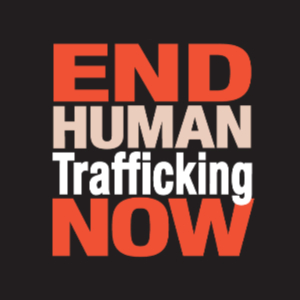
You can donate through our page on Freethem.ca. We’re non-profit so we can accept donations gladly. We just can’t issue tax receipts. If you want to support our work, you can. For today, we are really pushing the Underground Railroad. Tim Ballard’s work is incredible, and more children need to be rescued. You can link up to that on their website and donate directly so that we can rescue more children who are being exploited right now.
Shae, what a wealth of information. So much of what you’ve shared with us today warrants so many more discussions. I feel that what I want to leave everyone with is the fact that dialogue, communication, discussion is extremely important between parents and their children. That is really the starting point. The fear that a lot of the girls and the boys have in letting their parents down the embarrassment factor. I think that’s the very first conversation that needs to be had. It needs to be had in every home, in every school, in every church, in every community organization.
If you’re not having those conversations out there folks, start having them. it’s really, really important that the most powerful tool that we have as humanity is informed education. So, with that thank you so, so much, Shae. You are just truly a wealth of information. Please go to Freethem.ca, folks. All the information’s there, donate, support and let’s put an end to human trafficking so that we never have to have a conversation like this again. Thank you so, so much and thank you so much, Instagram family. Thank you so much, Facebook family. We truly look forward to getting your support and I will see you again in two weeks with another fabulous guest with another probing conversation. Thank you so, so much. Adore you, Shae.
Thank you, guys.
This live interview took place on Thursday, July 30th, 2020 on United Nations’ World Day Against Trafficking in Persons

